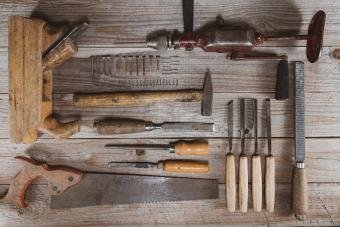
It's becoming less and less common for people to carry around cash with them, and those that do have made a habit of tossing their change into the nearest pocket without thinking twice. Yet, if you're one of these, then you could have a hidden gem tucked in that handful of coins, and you're none the wiser. Whether you're just picking out your first mercury dime or you've amassed an incredible stash of rare coins, investing in a coin collection appraisal for your hoard can make it easier to both protect and insure any of your pieces for future use.
Turn Your Piggy Bank Change Into a Fortune
You just might have a valuable coin hiding in that chunk of change rolling around in the bottom of your wallet, and you won't know until you look through each of your errant coins to see what exactly you've got hidden in there. Thankfully, you don't have to immediately find an appraiser to do a cursory assessment of your coins. Getting a sense for what you might have in your collection first will help you narrow down the perfect appraiser and make your appraisal session worth the fee.
When looking at any coins in your collection, you want to carefully investigate them based on a few criteria.
Look for Unique Features
Look over your coins for such things as a unique design on the front or back, an interesting mint stamp, misprinted text, or other discerning features. If you find anything special about a coin, such as an old date or unusual double-printing, set it aside for further investigation.
Check Coin Catalogs for a Match
Coin catalogs, like this online catalog from NCG (the official grading service of the American Numismatic Association), can be super helpful for identifying any unknown coins that you have as well as for getting an idea of what their values might be. Checking their preliminary values can help you decide if it's worth hiring an appraiser to check over them.
See What Materials You Have
Things like silver and gold--such as the pre-1964 silver coins from the US mint--can be valuable not only for their historic reputation but also for their bullion.
Assess the Coin's Age and Condition
Age and condition are two significant elements for coin collecting that you can try to determine at home. Of course, there's no guarantee that your estimates will be 100% accurate, but knowing what's in your stock is a great way to prioritize which coins you want appraised first.
Coins of Interest to Have Appraised
There're far too many coins--from both the United States and around the world--that have some collectible value for you to be able to be on the look out for all of them. However, there are some coins that are highly collectible that you can keep your eyes peeled for. If you find a few of these in your collection, they're a great place for you to start an appraisal with.

- 1943 Lincoln Penny - These pennies look just like your run-of-the-mill copper penny, but given they were mis-minted using copper instead of steel (which was rationed due to the war effort), they're rather valuable. In fact, only about twenty are known to exist.
- 1913 Liberty Nickel - Liberty nickels in general are pretty collectible, but it's believed that only a handful were minted in the design's last year (1913).
- 1794 Flowing Hair Dollar - A highly valuable coin, the flowing hair dollar is believed to be the first standardized silver dollar minted by the US treasury.
- 1918-7 D Buffalo Nickel - People love collecting buffalo nickels thanks to their unique design and early 20th century age. However, the most valuable of these nickels is one that clearly shows an overprinting of a 7 on top of the 8 in the 1918 printed date on its face.
- 1982 Non-Minted Dime - In terms of American coins, each of them has a single letter denoting which mint factory they came out of. The Philadelphia mint - which would have printed a P on the coin - accidentally left of the mint on a batch of dimes in 1982.
Consider Getting Your Coins Graded First
Coins are graded the same way that gemstones are: the higher the quality, the higher the grade. Highly graded coins can be sold for greater amounts of money from the get-go. While these grade assessments are equivalent to appraisals, they can further substantiate a coin's value on the professional front. However, the more valuable the coin, the more expensive the grade assessment is. While they're normally between $100-$200 max, this can be an added cost that not everyone finds worthwhile. If you're interested in getting your coins graded before or after an appraisal, you can contact graders from the Professional Coin Grading Service or Numismatic Guarantee Corporation for a great assessment.
What to Look for in a Coin Appraiser
It's of the utmost importance when you're looking for a coin appraiser to find a reputable one, with accurate pricing and appropriate certification. One excellent method to get an idea of where to even begin with finding one is to call your insurance company and ask if they use, or know of, any reputable coin appraisers. If they don't know of any, call other insurance companies in your area and see if they can offer you anything else.
One guarantee you can rely on to getting you a quality coin appraisal is finding a member of the Numismatists Guild, known as PNG. This guild adheres to the highest standards for coin appraisal, and being a member includes such strict policies as:
- Having a minimum of five years experience in the numismatic field
- Having numismatic assets over $175,000
- Agreeing to a binding arbitration to settle disputes
- Being elected to be a guild member
- Honoring and following the Coin Collectors Bill of Rights
- Remaining honest and ethical through all aspects of your business
Reputable Appraisal Groups/Certifications to Look For
PNG isn't the only great coin association that a quality appraiser can belong to. Here are some of the other associations as well as certification and authentication services that reputable coin appraisers and dealers may belong to:
- ANA - The American Numismatic Association
- ANACS - The oldest coin grading and certification service in America established in 1972
- CCCS - The Canadian Grading Service
- ICG - Independent Coin Grading

Beware Devious Appraisers
Many times, people aren't even slightly aware of how valuable the coins that they have in their coin collection are. It makes sense if you've inherited a collection from a grandparent or great-grandparent, and you weren't interested in the practice in the first place. Regardless of how your coin collection came to be, making an educated and thoughtful decision to secure your coin collection's value is one of the most important things you can do as a burgeoning collector.
By having some knowledge of your rare coins, you can protect yourself from unscrupulous coin dealers. These types of dealers have been known to offer appraisals that undervalue the coins and then offer to buy them for an amount far below their wholesale value. Methods that they use include:
- Showing a disinterest in a valuable coin and allowing the owner to think it's worthless
- Offering to buy a group of coins for a set price without telling the owner that one of the coins is valuable
- Grading the coin below its actual grade level, which is called downgrading
- Listing a valuable coin for less than its actual value
- Offering to buy an entire coin collection for a price far below its wholesale value
Important Resources for New Coin Collectors
If you're just getting started with coin collecting, here are some resources to expand your knowledge beyond appraisal and assessment:
- The Red Book US Coin Guide - This is an invaluable resource for identification, grading, and pricing coins.
- The Blue Book - This guide lists the wholesale values of coins which the dealers pay.
- Heritage Auction - Heritage Auction lists every U.S. coin made along with current and past auction values. They have over 1,846,000 past auction lots with images in their archives, making this an excellent tool for valuation.
Appraisals Can Help You Cash in Big
Coin collectors appraisal services are an invaluable resource to coin collectors since they can mean the difference between hitting jackpot and walking away empty handed. But, not every old coin out there needs to be appraised, and a quick way to not spend a ton of money on a dud is to do a short home appraisal yourself. Put on your amateur appraisal hat and see what value you can come up with; if you find that you might have a winner on your hands, don't hesitate to reach out and have a professional look it over. Now for more money fun, find out what a 2 dollar bill is worth or learn about Canadian coins worth money.







